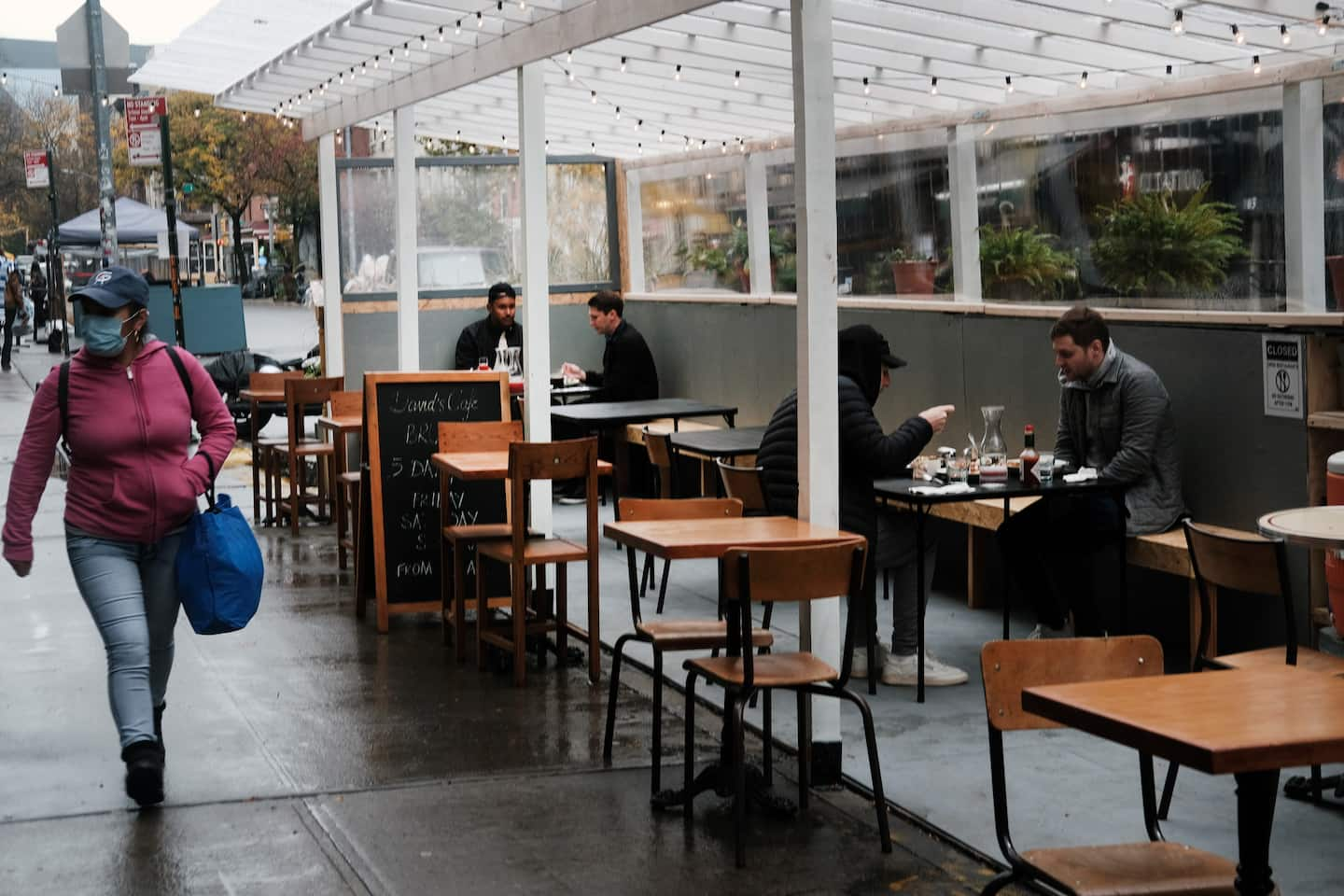How covid-19 is ripping us apart

That was then. As a third wave of covid-19 bears down on the United States, we are increasingly a society of defensive, self-protective winners and angry and resentful losers.
Let’s start with something fun, simple, and previously popular: dining out — an increasingly important part of Americans’ lives, especially in cities, in the years leading up to the present crisis. Now? Restaurants are implicated in the spread of covid-19, and — after carefully emerging from the first round of lockdowns — are being ordered to again reduce or entirely shut down their indoor spaces. Many former customers, petrified, avoid them even where they are fully open. (OpenTable reports that restaurant reservations are down by double digits from this time last year.) The result? Despite headlines like Eater New York’s “Where to Eat in Williamsburg Right Now,” and well-meaning Go Fund Me campaigns, a hospitality survey of more than 400 New York City restaurants found almost 9 out of 10 respondents were unable to pay the entirety of their October rent.
The first rounds of government stimulus last spring only offered small-business owners such as restaurateurs an inadequate package of loans and grants through the complicated Payroll Protection Program as part of the Cares Act. After that expired, negotiations between Democrats and Republicans over further economic stimulus went nowhere. If you’re wondering whom to blame, remember: Senate Majority Leader Mitch McConnell (R-Ky.) laughed when Democratic challenger Amy McGrath confronted him about inaction during a debate. Without adequate relief, we are, essentially, sentencing to death neighborhood restaurants that entrepreneurs poured their savings and passions into, while allowing their corporate rivals — chains specializing in cheap takeout — to make gains. McDonalds, for instance, is doing gangbusters business.
Don’t imagine that these restaurants and other small, local businesses will be able to simply start up again when the pandemic passes (yes, it will pass). Where will they get the money? If anything, many have cleaned out their savings. A survey conducted in September by Lending Tree found almost three-quarters of small-business owners racked up debt in the struggle to keep their enterprises alive. That’s not simply bad for us shoppers and consumers and diners. Empty storefronts and angry business owners aren’t good for a society’s stability.
Neither is shutting down schools. Remote learning is a pale substitute for in-person instruction. Children, especially those coming from lower-income and minority homes, are likely to suffer the impact of it for the remainder of their lives. Wealthy people, on the other hand, are forming pods with privately hired teachers, or sending their children to private schools in districts where public schools are closed. This number includes California Gov. Gavin Newsom (D). That we’ve accepted vast inequality of educational experience with hardly a peep of complaint does not bode well for our society’s ability to tackle our ever increasing wealth inequality.
Or let’s take the status of women. They’ve suffered the majority of the job losses during the coronavirus-caused recession. No small amount of this is driven by the need to take care of children who are now attending school remotely, either part-time or full-time. Women, as sociologist Jessica Calarco told the Culture Study newsletter this week, are the social safety net of the United States.
So what is in store for these women? Standards for what makes up good parenting have been rising for decades, and it has mostly fallen to mothers to keep them up. It seems likely that as even more women find themselves the primary hands-on-parent, that much-decried trend will get even worse. In a fascinating piece entitled “The Pandemic Exposes Human Nature,” published last month in the Proceedings of the National Academies of Science, a group of academic researchers led by Benjamin Seitz at UCLA attempted to game out what the pandemic will do to our society. One conclusion: it could “lead to a backslide in economic independence for women” as pandemic social norms lead to a more conservative society over time, one that encourages women to scale back their career ambitions, and pushes men to prioritize theirs.
I could go on. Many cities, bereft of much of their normal economic activity, are seeing at least a temporary end of a much-touted urban revival — as well a significant rises in their murder rates. The politicization of such interventions as mask-wearing reflects increased partisanship, making it even harder for us to unite to beat back the virus — never mind restore our economy to health.
The virus, which many once hoped might at least help bring our fractured society together, has turned into yet another way to divide us. Should we have really ever expected anything else?
Read more:






